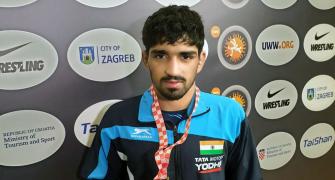The University of Wisconsin has sued Intel Corp, the world's largest computer chipmaker, after the two failed to agree on licensing a patent related to microprocessors.
The school's research arm claims the company violated the university's 1998 patents developed by four researchers including Professor Gurindar S Sohi, chair of the university's computer science department, in making the popular Core 2 Duo processor.
The federal lawsuit alleges technology used in the processor to increase its speed and efficiency was created by Dr Sohi and colleagues at the university, and Intel should have obtained a licensing agreement to use it.
Chuck Mulloy, a spokesman for the Santa Clara, California-based company, told reporters that the company disputes the claims and 'we certainly intend to conduct a vigorous defence.'
The university owns a patent for technology it said increases the speed and efficiency of chips. Dr Sohi, a distinguished professor who has graduated 13 PhD students, had presented his work to Intel many years ago, and offered to discuss licensing it, according to the complaint by the Wisconsin Alumni Research Foundation (WARF), an 82-year-old private, non-profit patent management organization that supports research and controls the university's patents.
"The technology of the UW-Madison researchers has been widely recognized in the field of computer architecture as a pioneering invention," WARF's attorney Michael Falk said. "The technology significantly enhances opportunities for instruction level parallelism in modern processors, thereby increasing their execution speed."
The WARF patent claims a data speculation circuit that facilitates the advanced execution of instructions before other instructions on which they may be data dependent, resulting in improved execution efficiency and speed.
"The technology of the UW-Madison researchers has been widely recognized in the field of computer architecture as a pioneering invention," says Falk.
'We are appointed with Intel's lack of response in resolving this matter, and while we were not anxious to use the courts to enforce our patent rights,' Falk said in a statement. 'We have no other recourse given our duty to protect the intellectual property of our inventors and the university.'
WARF contacted Intel about the issue seven years ago and repeatedly offered the company legal licensing opportunities for the technology, Falk said.
The lawsuit points out that Intel started using the technology in the Core 2 Duo processor without a licensing deal, and without informing Dr Sohi.
WARF, which is seeking as yet unspecified compensation, said it will use the money to advance continued research at the university.
WARF has also asked the court to stop Intel from selling the product, and to order Intel to pay damages to WARF and cover WARF's legal fees.
Intel settled a similar case late last year after trading accusations of patent infringement with Transmeta Corp; on that occasion the company agreed to pay $250 million to Transmeta in exchange for the right to use patented Transmeta technologies in its chips for 10 years.
Sohi, who earned a PhD in Electrical and Computer Engineering from the University of Illinois, has been a faculty member at the University of Wisconsin-Madison since 1985. He is currently the John P Morgridge Professor in the Computer Sciences and Electrical and Computer Engineering departments.
His research has been in the design of high-performance computer systems. He has co-authored several papers and patents that have influenced researchers and commercial microprocessors. In the mid 1980s, while most computer architects were investigating in-order processors, he investigated out-of-order processors, according to the University.
Over the years Dr Sohi has discussed his research with architects and given talks in design groups at most of the leading microprocessor manufacturers, including Digital Equipment, HaL, Hewlett-Packard, IBM, Intel, MIPS, Motorola, Silicon Graphics, and Sun Microsystems.








